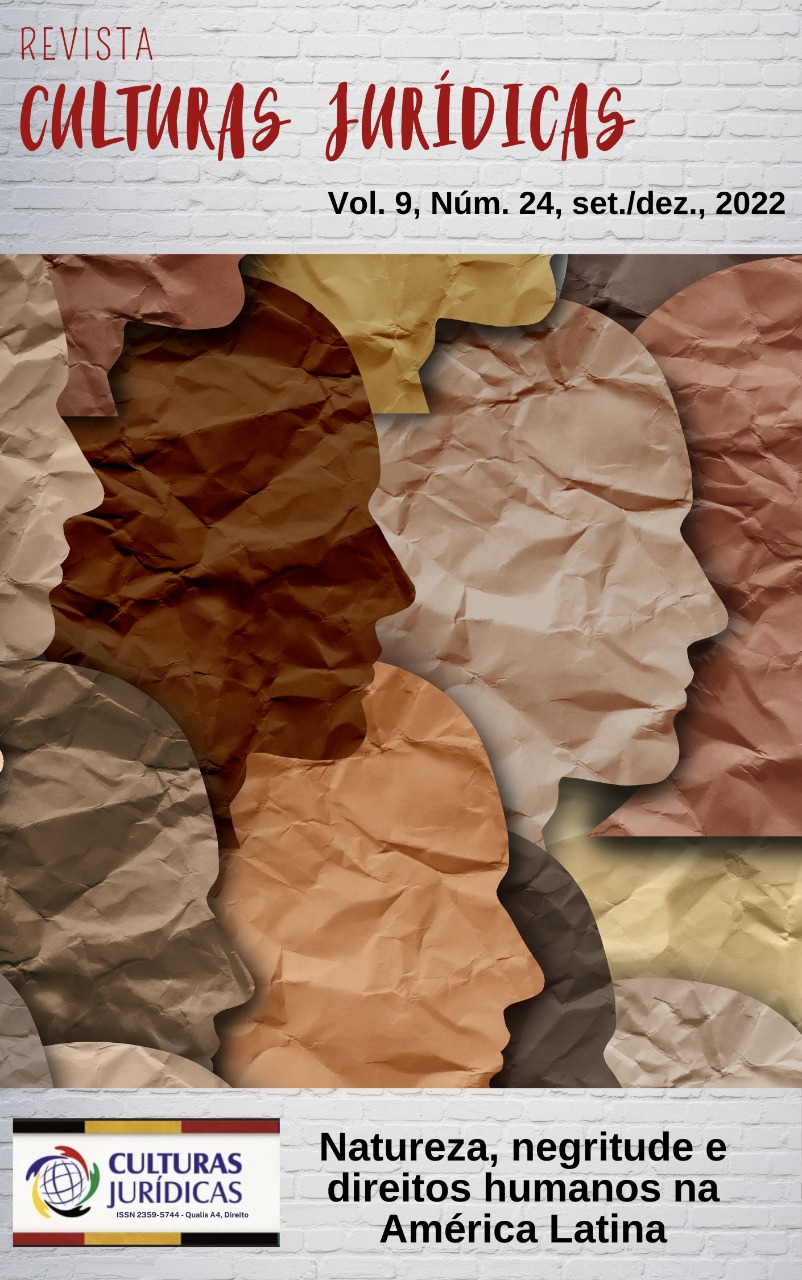A JUSTICE AS A PROBLEM
A READING OF GREAT HOPES
DOI:
https://doi.org/10.22409/rcj.v9i24.45025Keywords:
Charles Dickens, Grandes Esperanças, Liberdade, Direito e Literatura, Justiça, História do DireitoAbstract
This article discusses how the English judicial system is represented in the work of Charles Dickens, focusing on the novel Great Expectations. The fact that Dickens drew a very critical picture of the entire administration of justice in England is something that has already been noted by several commentators on his work. Our objective is to show how one of the results of this criticism of Law and its institutions would be to demystify the common sense spread since the 18th century in continental Europe that the English Constitution would have managed to build a free society. For this, we seek to present biographical aspects, inventory part of the criticism specialized in Dickens and treat the author's work in the light of discussions about the English example made in the early 19th century.
Downloads
References
BLACKSTONE, William. Commentaries on the Laws of England. Portland: Thomas B. Wait & Co., 1807, vol. 1.
BLACKSTONE, William. Commentaries of Constitution. Chicago: University of Chicago Press, 1979, vol. 4.
BLOOM, Harold (org). Charles Dickens’s Great Expectations. Bloom’s guide: comprehensive study guides. Filadélfia: Chelsea House, 2005.
BUTTS, DENIS. Macmillan Master Guide to Bleak House by Charles Dickens. Londres: Macmillan, 1986.
CHRISTIANSEN, Rupert. Dicken’ Attitude to the Law. Disponível em: http://exec.typepad.com/greatexpectations/dickens-attitude-to-the-law.html. Acessado em: 31/05/2018.
CLAVERO, Bartolomé. Happy Constitution. Cultura y lengua constitucionales. Madrid: Editorial Trotta, 1997.
DAVID, René. O Direito inglês. Trad. Eduardo Brandão. São Paulo: Martins Fontes, 2006.
DICKENS, Charles. Bleak House. Nova Iorque: Barnes & Noble Classics Series, 2005.
________. Grandes Esperanças. Trad. Paulo Henriques Britto. São Paulo: Penguin Classics Companhia das Letras, 2012.
________. Great Expectations. Oxford: Oxford University Press, 2008.
________. Oliver Twist. EBD, ebook sem data.
FYFE, Thomas Alexander. Charles Dickens and the Law. Edimburgo: William Hodge & Company, 1910.
GREEN, Thomas Andrew. ‘The English criminal trial jury and the law-finding traditions on the eve of the French Revolution”. Em: SCHIOPPA, Antonio Padoa (org.). The Trial Jury in England, France, Germany (1700-1900). Berlim: Duncker and Humblot, 1987.
LANGBEIN, John. ‘The English criminal trial jury on the Eve of the French Revolution”. Em: SCHIOPPA, Antonio Padoa (org.). The Trial Jury in England, France, Germany, 1700-1900. Berlim: Duncker & Humblot, 1987.
LYNCH, Christian Edward Cyril. O discurso político monarquiano e a recepção do conceito de poder moderador no Brasil (1822-1824). Rio de Janeiro: Instituto Universitário de Pesquisas do Rio de Janeiro, vol. 48, nº 3, 2005.
MACHELON, Jean-Pierre. ‘Les idées politiques de J.L De Lolme”. Edition Facsimile. Paris: Presses Universitaires de France, 1969. Em: LOLME, Jean Louis de. The Constitution of England. Livros I e II. Nova Iorque: Arno Press, 1979.
MITCHELL, Sally (ed). Victorian Britain: An Encyclopedia. Nova Iorque: Garland, 1998.
MONTESQUIEU. Charles-Louis de Secondat. ‘L’Esprit des lois”. Em: Oeuvres Complètes de Montesquieu. Tome Premier. Paris: Chés À Belin, 1817.
MOSS, Joyce. British and Irish Literature and Its Times: The Victorian Era to the Present (1837–). Londres: Gale, 2001.
ORWELL, George. ‘Charles Dickens”. Em: ORWELL, George. Inside the Whale and Other Essays. Londres: Gollancz, 1940. Disponível em: http://orwell.ru/library/reviews/dickens/english/e_chd. Acessado em: 31/05/2018.
PAROISSIEN, David. Selected Letters of Charles Dickens. Londres: Macmillan, 1985.
PARK, John James. Los dogmas de la Constituição. Trad. Ignacio Fernández Sarasola. Madrid: Tecnos, 2015.
PHILIPS, David. "A New Engine of Power and Authority: The Institutionalization of Law-Enforcement in England, 1780 – 1830." Em: Crime and the Law: The Social History of Crime in Western Europe since 1500. Londres: Europa, 1980.
RICHARDSON, Ruth. Charles Dickens and the workhouse. Oxford: Oxford University Press, 2012.
STAËL, Madame de. Diez años de destierro. Barcelona: Penguin Clásicos, 2016.
________. La literatura y su relación con la sociedad. Trad. Xavier Roca-Ferrer. Madrid: Berenice, 2015..
SUANZES, Joaquín Varela. ‘La monarquía en la teoría constitucional britânica durante el primer tercio del siglo XIX”. Em: Quaderni fiorentini per la storia del pensiero giuridico moderno, nº 23, 1994.
TROTTER, David. ‘Introdução”. Em: DICKENS, Charles. Grandes Esperanças. Trad. Paulo Henriques Britto. São Paulo: Penguin Classics Companhia das Letras, 2012.
WINOCK, Michel. As vozes da liberdade: os escritores engajados do século XIX. Rio de Janeiro: Bertrand Brasil, 2006.
WOLOCH, Alex. The One vs. the Many: Minor Characters and the Space of the Protagonist in the Novel. Princeton: Princeton University Press, 2003.
KAPLAN, Fred. Dickens: A Biography. Nova Iorque: Open Road Media, 2013.





